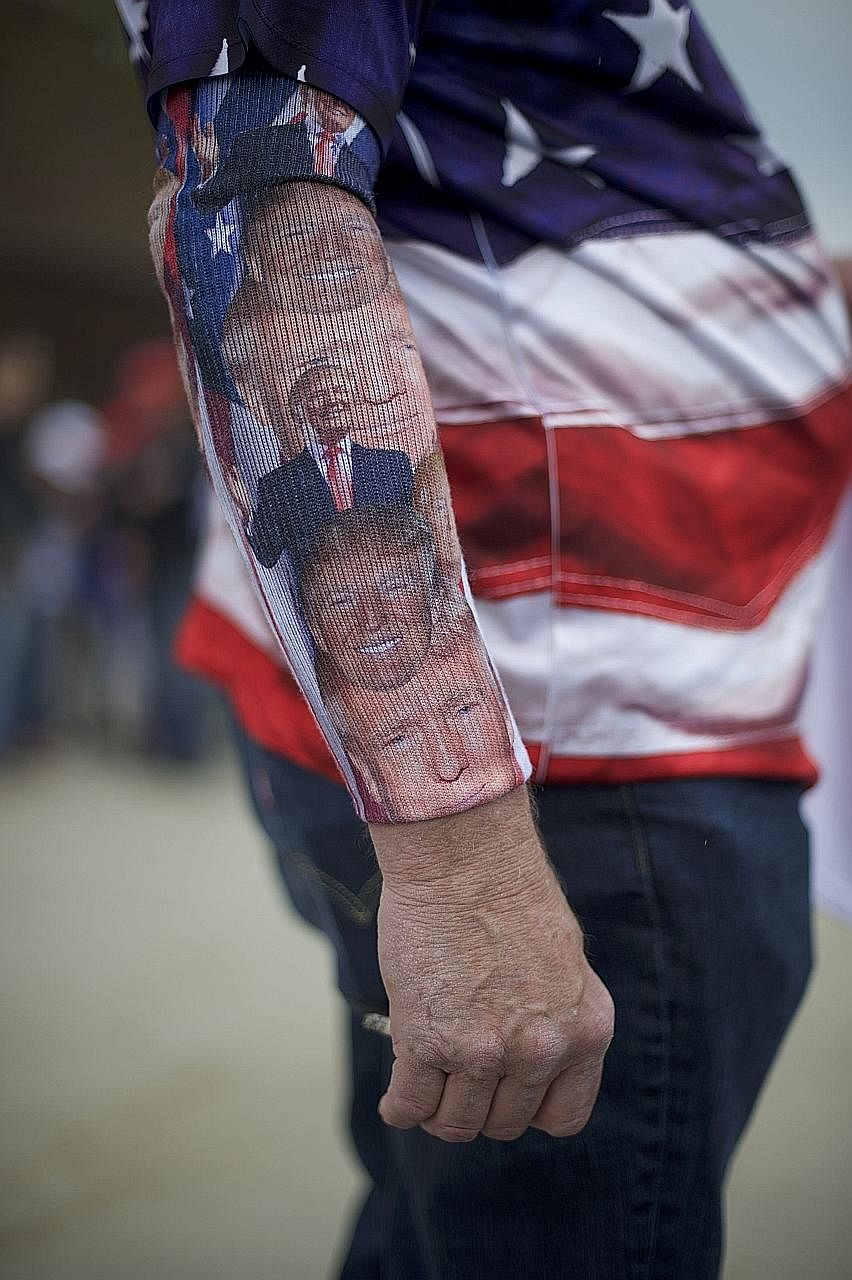Republican presidential front runner Donald Trump decries that the rules of the primary election are rigged and stacked against him, playing up his outsider status and turning the issue into a political minefield leading up to the Republican National Convention in July.
Even a routine Republican National Committee (RNC) meeting this week went ahead under the watchful eye of the media, waiting for a whiff of possible rule changes that might disadvantage Mr Trump or change the Republican field in any way.
On Thursday, the party's standing committee on rules discussed a proposal by RNC member Solomon Yue to give more say to the delegates on the convention floor rather than the presiding officer.
But it was voted down, in line with repeated calls by RNC chairman Reince Priebus to avoid any rule recommendations now as it would "just confuse people".
Said Washington University School of Law professor Gregory Magarian, an expert in political law: "The contest remains too unsettled, and the committee won't want to be seen as taking sides."

The standing committee on rules cannot make changes but can make recommendations to the separate convention rules committee, which will then approve, reject or amend them. Any rule change would also have to be supported by a majority of the 2,472 delegates at the convention.
The obscure 112-member rules committee, which convenes on the weekend before the convention, could have a significant role in determining the outcome of the convention.
The most talked-about potential change is to Rule 40(b), which sets the minimum support a candidate must receive to be officially nominated. In 2012, the rule was changed so that a candidate needed to win a majority of delegates in at least eight states, instead of five, to be the official nominee. This essentially prevented anyone other than front runner Mitt Romney from being nominated.
Lowering the bar this time would be seen as an attempt by the establishment to sideline Mr Trump and Texas Senator Ted Cruz in favour of another candidate, presumably Ohio Governor John Kasich or another contender whom they might parachute in.
The key, then, is for Mr Trump or Mr Cruz to fill the rules committee with delegates who might represent their interests.
A likely scenario, said Professor Magarian, is that "Cruz and Trump supporters join forces to keep Rule 40(b) in place. But each will be trying to gain advantage over the other, so I think it's reasonably likely that one of them breaks ranks".
Prof Magarian said that the Cruz campaign could decide that it is to its advantage to allow a third candidate - whom they deem as having no chance of winning - on the nomination list, to then gain favour with this candidate's supporters.
"It's very difficult to predict right now... We don't know what kind of alliances Trump and Cruz will be trying to make in the event of a contested convention," he said.
Changes aside, Mr Trump is also firing up his supporters by claiming that some of the existing rules are rigged.
For example, Colorado did not hold a caucus or primary and skipped straight to a convention setting where delegates were selected. Mr Cruz swept all 34 delegates in the state earlier this month.
In response, Mr Trump said that regular Republicans in Colorado were "going absolutely crazy because they weren't given a vote, this was given by politicians. It's a crooked deal... It's a rigged system".
While all candidates were aware of these rules, there is a sense that in some states the power of selecting delegates lies in the hands of political activists rather than regular voters, giving cause to an outsider such as Mr Trump to rant about the system.
Prof Magarian noted it is possible that those who chose the delegates could have made a strong effort to understand and honour the party's voter base before they made their selection. But he added: "Most people will have some sympathy with the argument that selection by party activists is less democratic than selection by popular primary."
